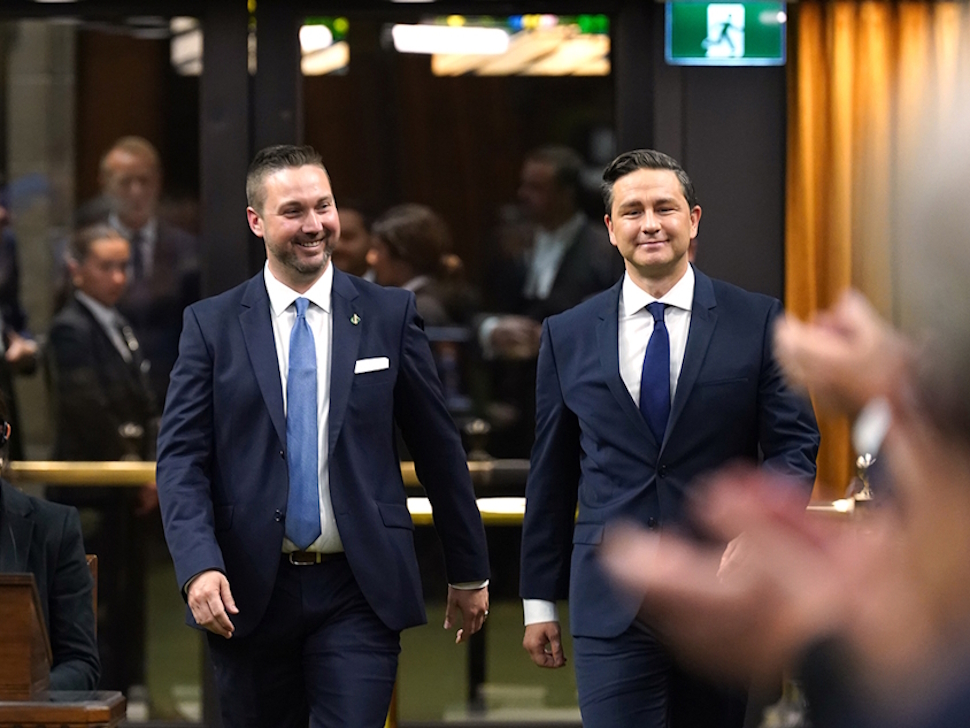As Parliament remains on summer recess, Portage–Lisgar MP Branden Leslie is reflecting on what he calls a productive first half of 2025 and preparing for a pivotal fall session in Ottawa.
After being re-elected with nearly 70 per cent of the local vote, Leslie says he’s remained deeply engaged with residents across the riding—especially during the five-month prorogation earlier this year, which he describes as frustrating but also an opportunity.
“The months off, early in the year, were certainly not off,” he says. “They were busy in the community, and it was a great opportunity to hear from so many folks about the concerns on their mind.”
Though disappointed by the national election result, Leslie says the Conservative caucus has re-grouped and is determined to hold the new Liberal government accountable.
“We pick ourselves up, move on,” he says. “We are the official opposition once again, and are trying to lower the cost of living that we’re all facing the crunch of right now.”
Challenging EV mandates and green policy
One of Leslie’s primary concerns heading into the fall is the government’s mandatory electric vehicle policy, which includes financial penalties for auto manufacturers exceeding gas-powered vehicle quotas.
He believes the policy is both economically damaging and disconnected from life in rural Canada.
“It may well be the way of the future,” Leslie acknowledges, “but I’m a firm believer in freedom, and that freedom means that consumers can decide what vehicle is best for them.”
He says Ottawa’s one-size-fits-all approach fails to recognize the infrastructure, climate, and practical limitations in regions like Portage–Lisgar.
As a returning member of the Environment Committee, Leslie says he’s already challenged the Environment Minister on the issue and intends to keep doing so this fall.
Leslie notes that while the American administration has pulled back its own EV mandates, the Canadian government is still pouring tens of billions of dollars into projects that “may or may not get off the ground.” He says taxpayers are being forced to fund an industry that isn’t yet sustainable, and in some cases, is already failing.
“Companies [have] gone under that have received massive subsidies from this government,” he says. “We live differently in our rural areas. It’s just not realistic from the local transmission to homes, to the amps available, to the broad generation capacity required.”
He adds that the mandate risks cutting municipal revenue from fuel taxes while providing no feasible alternative.
Instead, Leslie is pushing for what he calls “common sense, sound environmental policy that’s actually going to lead to real results for cleaner air, cleaner water, and a better quality of our environment.”
Budget frustrations and economic priorities
Leslie is also sounding the alarm over the federal government’s decision not to table a full budget this year—despite the Prime Minister campaigning on being “the man with the plan.”
He says the government’s fiscal documents are opaque and difficult even for MPs to navigate, and that billions in public spending are going out the door with little oversight.
“Spending billions and billions of dollars without any real oversight is certainly something that we’ve been frustrated with,” he says. “It’s going to be our job to make sure that money is being spent wisely.”
While the Liberals have signalled intentions to rein in spending, Leslie says the time for action is long overdue. He points to a 45 per cent increase in federal public service employment and a doubling of consulting contracts in the past decade as examples of fiscal bloat.
“We need to pick a lane,” Leslie says. “Our public servants can do a good job and we should be supporting them, but we need to make some choices on how we spend our money.”
He also says economic stagnation, weak job growth, and runaway inflation are consequences of poor government policy, and that Canada needs to become a country that builds again.
“I want this country to be one that builds things and gets people working, giving them the value of work and more prosperity,” he says. “We can do so much better.”
Party Focus and What Comes Next
Despite the loss in the spring election, Leslie says the Conservative Party is more united than ever and energized by the return of Pierre Poilievre, who is anticipated to reclaim a seat in the House of Commons following a summer by-election in Alberta.
“There are a lot of Canadians who support us and the ideas that we shared during the campaign,” Leslie says, adding that many of those ideas were later adopted by the Liberal platform. “Our caucus is united. We are invigorated.”
He also points to Conservative fundraising numbers and the fact that the party received over 41 per cent of the national vote—its highest share in more than three decades—as evidence of momentum.
Looking ahead, Leslie says he’ll spend the rest of the summer hosting community barbecues and meeting with local governments and businesses to gather feedback on priorities for the fall.
“We’ll be holding the government to account, proposing ideas, and pushing this government to make the right choices to give all Canadians a little bit more hope and opportunity for a better life for themselves and their families.”
